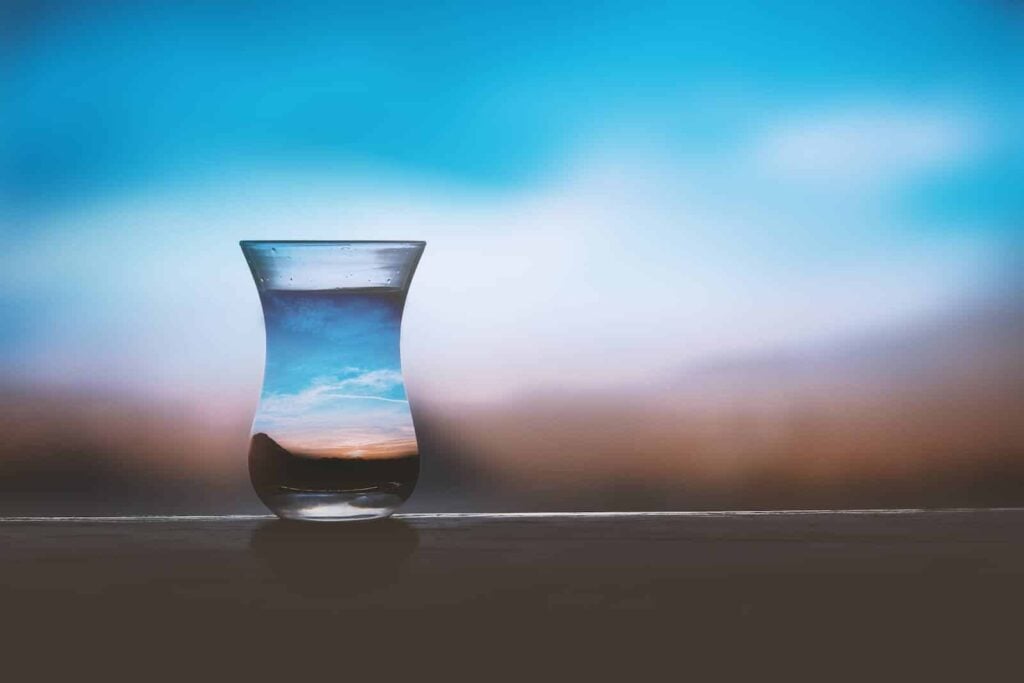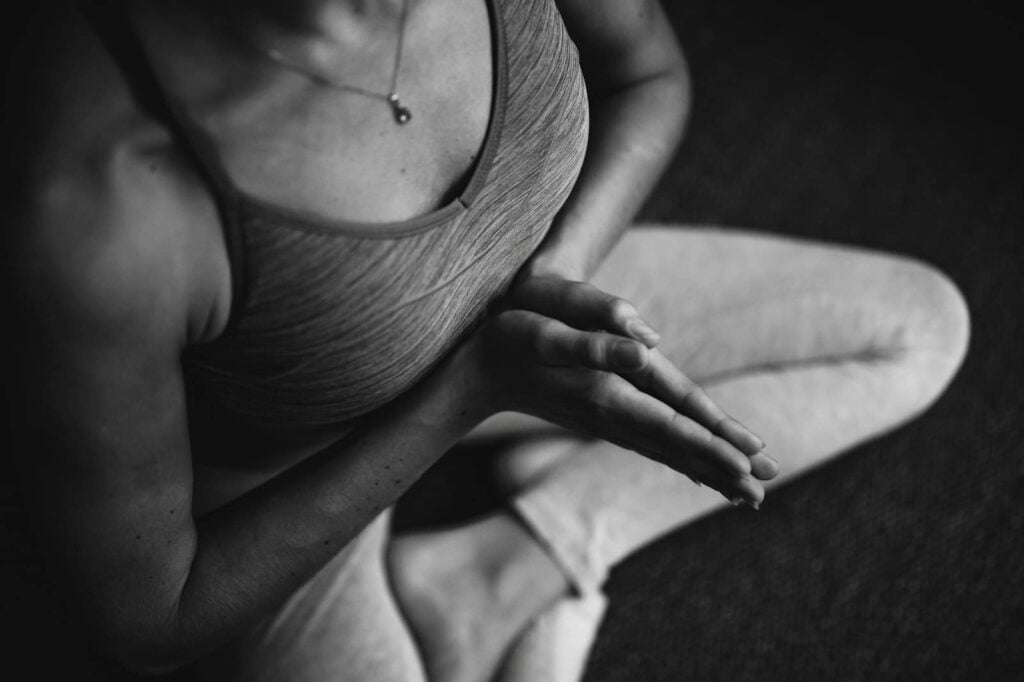Imagine you’re a well-tuned instrument that’s just been expertly played; that’s how your body might resonate after an acupuncture session. You’ve embarked on a therapeutic journey, where needles act as the maestro’s baton, orchestrating a harmonious balance within you.
As the effects of the treatment surface, you’ll likely feel a sense of relaxation that suggests the beginning of your body’s symphony of healing. However, the melody of recovery doesn’t end as you leave the acupuncturist’s table. In the coming days, you may encounter a range of sensations, some as subtle as a whisper, others as noticeable as a crescendo. These are the signs of your body’s response to the subtle prompts of acupuncture, and they deserve your attentive care.
The nuances of what you may experience are as varied as the notes in a musical score, and understanding them can be the key to enhancing your overall well-being. Stay tuned, as we’re about to explore the post-treatment sensations that can guide you towards a more attuned version of yourself.
Key Takeaways
- Immediate reactions after acupuncture may include fatigue, temporary exacerbation of symptoms, minor soreness, and heightened emotions, but these symptoms typically resolve within a day.
- Healing crisis, which is a temporary increase in discomfort or symptom flare-up, is a normal part of the healing process and shows that the body is adapting to acupuncture effects. It leads to improved health and comfort.
- Post-acupuncture side effects may include feeling tired, muscle pain, and emotional release. Long-term effects of acupuncture may include improved mental state, a feeling of calm and peace, better awareness of body and mental processes, increased vitality, and smoother digestion.
- To manage post-acupuncture experiences, it is important to allow ample rest, stay well-hydrated, avoid vigorous exercise, consider gentle stretching, and make dietary adjustments for overall well-being.
How do you feel after acupuncture

As a part of the after effects of acupuncture, you may feel a sense of relaxation and calm as you engage your parasympathetic nervous system. Some people also report feeling a slight euphoria or a boost in energy.
You may feel an initial wave of fatigue after acupuncture as your body heals; this is a normal response.
It’s also not uncommon to experience a temporary exacerbation of symptoms, which some interpret as a ‘healing crisis,’ showing deep-seated adjustments.
Be aware that while minor soreness and heightened emotions are also typical side effects, they typically resolve within a day.
Is it normal to feel worse after acupuncture?
Feeling a bit off after an acupuncture session is fairly usual and can suggest that your body is reacting to the treatment. It’s not unusual for symptoms to temporarily intensify as your body heals.
Here’s what you might notice:
| Possible Reaction | Explanation |
|---|---|
| Soreness | A common reaction at the sites where needles were inserted |
| Light-headedness | A brief change in blood flow |
| Emotional Sensitivity | A natural part of processing and releasing emotions |
What is a healing crisis day after acupuncture?
After receiving acupuncture, some individuals may experience what’s referred to as a healing crisis. This condition can emerge as a temporary increase in discomfort or a flare-up of the symptoms you’re seeking to alleviate, but it can be a sign that your body is responding to the treatment. For example, you may feel more tired than usual, or the pain you’re dealing with might briefly get worse.
It’s vital to understand that this is a normal part of the healing process, and it shows that your body is adapting to the effects of acupuncture. If you feel unwell following a session, it’s a good idea to talk to your acupuncturist about it, as this can also be an indication that the treatment was too strong for your body on this occasion. These sensations are generally short-lived and pave the way to improved health and comfort. However, if you find your symptoms aren’t improving or are intensifying, inform your practitioner. They might need to change your treatment approach.
When you go for acupuncture, keep in mind that a healing crisis is a possibility, and it’s just your body sorting itself out. Always maintain open communication with your acupuncturist to ensure the best care.
Shine a light on your Five Element Nature
Explore your dominant element and discover ways to live in better alignment with your inner nature.
What are the common side effects of acupuncture
While the risks of acupuncture are minimal, some individuals may experience mild side effects such as bruising, soreness, or minor bleeding at the sites where acupuncture needles were inserted. This is in alignment with the findings of research into this acupuncture’s side effects.
Feeling dizzy or fainting shortly after treatment can happen, but these reactions don’t last long and aren’t usually a cause for worry.
You might also notice that you’re more emotionally sensitive afterwards, which can be part of the healing process.
Some people experience changes in their bathroom habits, such as more frequent trips to the toilet, which can be a sign that the body is getting rid of toxins and trying to balance itself.

is it normal to feel tired after acupuncture
Feeling weary after an acupuncture treatment is a typical reaction, as your body heals itself. Acupuncture can trigger a relaxed state, which may lead to a feeling of peacefulness. If you’re often under a lot of stress, this can be an especially important part of your path to wellness. The tiredness you’re feeling is a way for your body to tell you it needs rest. It’s a good idea to listen to this message and take it easy for a while.
Remember to look after yourself after a treatment and give your body the time it needs to recover. This is a natural part of the healing process and a sign that the body is working to find its balance again.
My Muscles: Does pain get worse before it gets better with acupuncture
Sometimes you may wonder is it normal to feel more pain after acupuncture treatment. You might find back pain or other musculoskeletal pains flaring up, or even a headache after acupuncture treatment. This can arise when there is a realignment of body structure as muscle tension is released, causing other underlying areas of dysfunction to become more prominent. An increase in blood and energy flow to an area can bring with it an increased presence of Shen (consciousness/awareness), especially the Po, which can make one more aware of the presence of pain that one may have become habituated to.
When you undergo acupuncture, these sensations are signs that your body is responding to the treatment. The initial increase in pain is often followed by relief and can be seen as an encouraging sign that your body is moving towards healing. Remember to discuss any concerns with your acupuncturist, who can provide guidance tailored to your experience.
Emotional Release after acupuncture
Acupuncture can often lead to the release of strong emotions as it activates the body’s healing mechanisms. This can cause previously buried feelings coming to the forefront. It’s quite normal to feel a deep sense of relief during or after a session, and some people may even cry. As part of the healing process, this emotional release can help to clear blocked energy associated with emotions, helping you to achieve a greater sense of balance and calm.
This can happen because acupuncture works on the energetic system of the body, understanding that both the physical and emotional aspects of our being are united. We hold often hold our emotional load in our physical body and as this releases, our stored or subdued feelings can arise to the surface.
For your emotional wellbeing it is best to allow these emotions to express and release themselves. It’s completely natural to feel exposed and sensitive, and your practitioner is trained to provide support during these moments. However, if you continue to experience emotional distress, it may be beneficial to consult a licensed therapist for additional support. While acupuncture can support overall well-being, it doesn’t replace specialized psychological treatment. Chinese Medicine works with, rather than replaces, mental health care.
Long-term Health Effects From Acupuncture Sessions
Regular acupuncture can lead to a more relaxed mental state, helping you feel at ease. It also promotes attention to the present moment and a connection with your physical sensations.
Physically, you may find yourself with more energy for daily tasks and notice an improvement in how your body processes food. The practice can also support emotional balance, providing a steadier mood and helping to manage stress more effectively.
Acupuncture’s benefits accumulate with time and can contribute to a better quality of life. It’s a process that supports your well-being in a gradual, sustained manner to assist you in managing your health conditions.
What to Do after Acupuncture: Tips for Post-Acupuncture Care
After your acupuncture session, it’s beneficial for your recovery to take some time to rest. Alongside this is a wide range of things you can do to support your healing journey.
For how long should you rest after acupuncture appointment?
Aim to get adequate rest to allow your body’s natural ability to heal and rebalance. Usually this means taking it easy for the rest of the day until bed, though in more chronic conditions a day or two of lighter activity can be helpful.
Post-treatment, you should:
- Proceed gently with your activities and steer clear of any that are physically demanding.
- Keep away from busy social gatherings that might demand a lot of energy.
Resting properly isn’t only about giving your body a break but also giving your mind time to unwind. You can:
- Make sure your surroundings are peaceful.
- Consider activities like reading quietly or practicing meditation.
- Listen to calming music.
Does your body detox after acupuncture? The importance of good Hydration.

Receiving acupuncture can prompt your body to get rid of waste more effectively, which is why it’s vital to drink plenty of water. Acupuncture releases constriction and increases the circulation of fluids in your body – including through your lymphatic system. This helps your body flush out the waste, especially through your liver, and it may take up to three days for this process to complete. Water is key in this process, whereas drinks that cause you to lose fluids, like coffee or alcohol, can hinder it.
Our bodies are made up mostly of water—around 55-60%. Every single function in our body depends on water, including getting rid of waste. Keeping hydrated helps not just with this detox process, but also keeps your organs working properly, helps control your body temperature, and could help you avoid headaches.
After having acupuncture, making sure you drink enough water is a smart move for your health. I advise 3-4 glasses between the treatment and bed, and a health 6-8 glasses the following day.
should you stretch after acupuncture therapy?
After acupuncture, your muscles and tissues have been stimulated, and gentle stretching can support this process by helping to maintain the improved state of relaxation and stimulation achieved during the session. However, avoid any vigorous or intense stretching immediately after acupuncture.
- Light Stretching:
- Target the areas your acupuncturist focused on
- Stay away from forceful or extensive stretches
- Prioritise Safety:
- Pay attention to what your body is telling you
- Avoid stretching to the point of discomfort
Remember that every individual is unique, and what works for one person may not work for another. Listen to your body and only stretch within your comfort level.
Dietary Considerations
After an acupuncture treatment, it’s wise to be mindful of what you eat. The session is designed to restore balance and encourage healing within your body. The food and drink you choose post-treatment can enhance or impede the benefits of your session. Drinking plenty of water and eating wholesome foods can help to flush out toxins and support the balance achieved during acupuncture.
When considering your post-acupuncture diet, remember:
- Hydration is key. Water and herbal teas are great choices to help your body detoxify.
- Select foods that are nutrient dense, such as fruits, vegetables, whole grains, and lean proteins, to give your body the building blocks it needs for repair and maintenance.
- Opt for antioxidant-rich foods like berries, nuts, and green leafy vegetables to help stabilize your energy levels and prevent oxidative stress.
Self-massage Techniques for pain relief
Following your acupuncture treatment, incorporating self-massage into your daily routine can help to ease pain. By focusing on tense areas, you can maintain the benefits you gained from the acupuncture.
Here are a few self-massage methods to try:
- Gentle kneading: Carefully work the skin and muscles with your fingers, paying particular attention to the neck and shoulders.
- Circular motions: Use a little pressure to make small circles, which can encourage blood flow. This technique works well on the arms and legs.
Gentle self-massage of the treated areas can help ease soreness and promote relaxation. Use light pressure and circular motions to massage the skin. (NB depending on the style of acupuncture performed, the areas where you have been treated directly may not always be exactly where your discomfort is)
Vary the pressure and length of time you spend on each technique to find out what works best for relieving your pain. Treat your body with care, particularly when massaging sensitive areas, and try to include these self-massage methods into your routine for continued relief.
When massaging, it’s beneficial to listen to your body’s response and adjust accordingly. It’s not about applying the most pressure, but finding a balance that eases your discomfort. Regular self-massage can be a practical part of a holistic approach to managing pain.
Mindfulness and Relaxation Practices
After your acupuncture session, adding simple relaxation techniques can make a big difference in your recovery. Try taking slow, deep breaths, sitting quietly to meditate, or doing some light stretching to keep the sense of tranquility going. Consider a warm bath or playing some calm music to help you unwind. Stay away from stressful activities so your body and mind can rest properly.

Make sure you get plenty of sleep and drink enough water. Eating a well-rounded diet helps your body heal too. These steps aren’t just extra; they’re key to getting the most out of your acupuncture treatment and looking after your health.
Here are some reasons these practices matter: Deep breathing can lower stress hormone levels in your body, meditation can help clear your mind and reduce anxiety, and a balanced diet provides the nutrients your body needs to repair itself. So, not only do these activities feel good, but they also have a real impact on your physical and mental recovery.
Herbal Remedies and Supplements
Your acupuncturist may recommend specific Chinese Medicine herbal remedies or supplements to support your treatment. Follow their guidance regarding the use of these additional therapies.
- Relaxation and Emotional Well-being:
- Chamomile and lavender are herbs known for their soothing properties.
- Magnesium supplements may reduce muscle tension and support a relaxed state.
- Digestive Health and Liver Function:
- Herbs like milk thistle and dandelion root are traditionally used to assist liver health.
- Incorporating supplements high in fibre can aid in maintaining a healthy digestive system.
What Not to Do in your Acupuncture after care routine
To ensure the best outcomes from your acupuncture treatment, there are certain things to avoid after a session.
Can You Exercise after Acupuncture?
When considering whether to exercise after receiving acupuncture, it’s fine to do so and might actually support the effects of your session, as long as there’s no injury or your acupuncturist hasn’t advised against it. However, refrain from engaging in vigorous exercise or heavy lifting for at least 24 hours after acupuncture. This allows your body to recover without placing undue stress on the treated areas.
Keep these points in mind:
- Take safety steps:
- Always warm up and cool down to avoid pulling muscles.
- Heed any personalised advice your acupuncturist might give you.
- Pay attention to how you feel:
- If you’re feeling more tired than usual, it’s okay to rest.
- Your muscles might need some time to adapt after your session, so don’t push yourself too hard.
Exercising can complement your acupuncture by helping with blood flow and overall health. But your comfort and how you feel after your session should always be your top priority.
Limiting Caffeine and Alcohol Intake
To get the most out of your acupuncture treatment, it’s wise to cut back on caffeine and alcohol afterwards. Caffeine may negate the soothing effect by triggering stress hormones, which could worsen any issues you’re trying to improve. Opt for natural methods to keep your energy up, allowing your body to reap the full advantages of the session and aiding in the healing process.
Likewise, drinking alcohol could interfere with your body’s ability to heal, making bleeding and bruising at the needle sites more likely. It can also cause dehydration, which might make hangover symptoms worse. To encourage recovery, it’s best to steer clear of alcohol for at least a day following your treatment.
Why can’t you shower after acupuncture?

It is recommended to avoid showering immediately after acupuncture, especially if you have sensitive skin or if the needles were inserted on areas of your body that may be more prone to irritation. It is best to wait a few hours before taking a shower.
After exercising, the skin pores open to release excess heat due to increased flow of energy and blood. An extra hot shower will expand your blood vessels causing further flow and open the pores more, which can cause the loss of your internal warmth (Yang energy).
Conversely showering or bathing with cold water send shivers down your spine, but it will also invite sneaky chills into every nook and cranny of your body. This is known as an invasion of cold, which is one of the six exogenous factors.
It is also believed that bathing immediately after an acupuncture session may cause the entry of dampness into the body – another external exogenous factor.
Don’t ruin your acupuncture session! Taking a scorching hot or freezing cold shower afterwards undoes all the good vibes. Say goodbye to balance and hello to muscle tension and wonky body temperatures. It’s like starting over or, even worse, diving headfirst into discomfort.
Digital screens
After your acupuncture session, it’s best to avoid immediately turning to your phone or watching TV. The light from these screens can disturb the relaxed state you’ve achieved. To keep the peace and get the most out of your treatment, try to reduce the time you spend looking at screens.
If you need to use electronic devices, aim to do so in short periods, and remember to take regular breaks. This will help maintain the sense of calm from your session. Giving your eyes and mind a break from screens can support the positive effects of acupuncture. Put your health first by taking this time to rest and recover.
The guidance here is to help you continue feeling good after your treatment. It’s not just about reducing screen time; it’s about understanding that your body has undergone a therapeutic process. Allowing it to settle into this state without disruption from bright screens can be beneficial.
It’s not just about what you avoid, but also about what you do in this downtime—perhaps resting, reading a book, or taking a gentle walk, all of which can contribute to your well-being post-acupuncture.
Junk Food
After giving your body the care it needs through acupuncture, it’s beneficial to avoid junk food to maintain the positive outcomes of the treatment. Consuming items filled with sugar and fat might disrupt the healing process. Consider the following points:
- Junk food isn’t ideal because:
- It’s packed with calories and lacks essential nutrients.
- It can cause inflammation, which may negate the anti-inflammatory effects of acupuncture.
When you take care of yourself with alternative therapies like acupuncture, complement this by choosing nutritious foods. This will help sustain the improvements in your wellbeing. Healthy eating can also support the body’s natural healing mechanisms and contribute to overall health.
Incorporating Acupuncture into Your Wellness Routine
For individuals seeking long-term relief from chronic conditions, integrating acupuncture into a wellness routine can be highly beneficial.
Combining Acupuncture with Other Therapies
When managing chronic pain, it’s beneficial to use acupuncture alongside other treatments. Acupuncture isn’t a stand-alone solution but complements other therapies such as chiropractic care, massage therapy, or physical therapy. Integrating these modalities can enhance the benefits of acupuncture and your overall well-being.
It is advisable to leave a day or two between treatments from different modalities to allow your body space to integrate each therapeutic intervention. This integrated approach can lead to better health outcomes.
Tell your acupuncturist about any other treatments you’re receiving. This ensures your care is coordinated and safe. It’s important for your health and safety.
Communicating with Your Acupuncturist for Optimal Results
Open communication with your acupuncture practitioner, whether you are on or off the acupuncture table, is key to achieving the best results. Share any changes in your symptoms such as bowel movements or emotional shifts or overall health to ensure that your treatment plan is tailored to your needs.
- Share your health goals and any issues you’re facing.
- Work with your practitioner to create a tailored treatment strategy.
- Make sure your treatment is both safe and effective.
- Update your acupuncturist on any new developments or progress.
- Be open to adjustments in your treatment as needed.
- Keep a detailed record of your treatment journey.
Conclusion
As the final notes of your acupuncture treatment fade, nurture the melody of wellness beginning to emerge within you. Avoid rushing into life’s cacophony again too soon. Instead, let the tranquility of the session continue to resonate through mindful self-care.
Sip water as if it flows from the Fountain of Youth, rest as if wrapped in the strings of a loving embrace, and give your body time to harmonize its newly tuned instrument. Allow your cells to sing with rejuvenation and your being to echo with the indications of renewal.
This experience is not just a routine wellness pit stop – it is a complete harmonic progression into realigned rhythms. Attend to the vitality awakening inside you with care and patience. Then watch in awe as your health and wholeness hit a crescendo, elevating your human melody to new heights of healing and hope.



